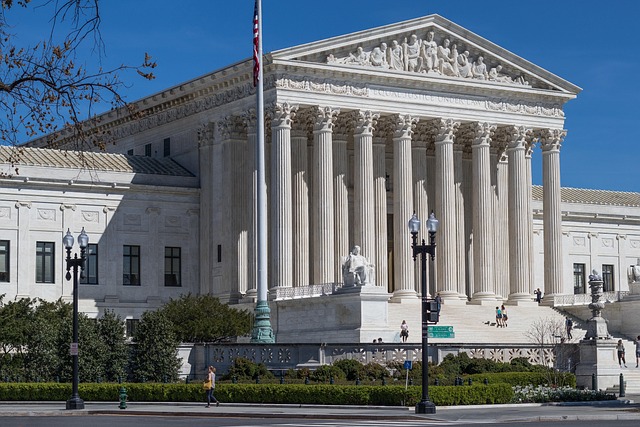
More Thoughts on NCN Litigation and Nationwide Injunctions
05.05.2025 | Linda J. Rosenthal, JD

During the 2016 election-campaign season, a key GOP talking point was a promise of “tax reform.” Now in control of both ends of Pennsylvania Avenue, Congressional Republicans and the White House are eager to move forward.
The philanthropy community is alert to any signs or signals about proposals that may affect the nation’s charities, beyond the matter of the Johnson Amendment. In particular, there is concern about chatter suggesting that existing incentives to charitable giving may be strengthened, weakened, or eliminated completely. “Tax proposals coming from the White House and House of Representatives have, to date, featured elements such as increasing the standard deduction that would have unintended, negative effects on giving.”
In a sea of legislative chaos and gridlock, there is a ray of good news: in mid-June, a bipartisan “group of U.S. senators introduced legislation intended to provide a bigger (life) boat.” It’s designed to safeguard the important charitable tax deduction and enhance incentives for charitable giving.
Of course, there’s bad news as well: (1) No one knows exactly when the tax issues will move center stage on the Congressional agenda and (2) observers give this proposed legislation little chance of success.
Senators John Thune (R-SD) and Pat Roberts (R-KS) have joined Bob Casey (D-PA) and Ron Wyden (D-OR) to sponsor S-1343, the Charities Helping Americans Regularly Throughout the Year Act of 2017 (CHARITY Act).
It is the sense of the Senate that encouraging charitable giving should be a goal of tax reform,” the bill reads. “Congress should ensure that the value and scope of the deduction for charitable contributions is not diminished during a comprehensive reform of the tax code.
This is the second go-round for the CHARITY Act. It was introduced, without success, in the last session of Congress.
The three central elements of this legislation are:
So where, exactly, is the bit about preserving the charitable tax deduction, you ask? There is language stuffed into this third section that calls for preserving “the full value and scope of the charitable deduction.”
Leading voices in the charitable community have chimed in on this unusual bipartisan legislative initiative. The National Council of Nonprofits (NCN) has voiced strong support:
Today’s introduction of the ‘Charities Helping Americans Regularly Throughout the Year Act of 2017’ (CHARITY Act, S. 1343) is a welcome step towards protecting and growing our nation’s rich tradition of encouraging charitable giving….(The 3 key) … provisions will go a long way towards clearing hurdles that can stymie charitable giving and subsequently will make resources available to millions of people who need them.
The Council on Foundations is especially thankful to the bill’s authors, … for being such steadfast partners with the philanthropic sector in our efforts to promote social good. We appreciate the opportunity to collaborate in the crafting of this bill and look forward to working with the Senate sponsors to support this bill’s passage. Amidst the ongoing public debate over comprehensive tax reform, this legislation moves forward long held priorities that help ensure that charitable giving, a hallmark of our society, will be protected in any comprehensive tax reform.
A Council on Foundations spokeswoman, Hadar Susskind, views the NCN statement, along with statistics in the legislation “highlighting the importance and prominence of the charitable sector,” as “encouraging” particularly in light of the talk in Washington, D.C. of possibly raising the standard deduction. Such a move “would have unintended, negative effect on giving.”
Dan Busby, president of the Evangelical Council for Financial Accountability (ECFA), believes that “most nonprofit leaders” will like this legislation. Sandra Swirski, executive director of the Alliance for Charitable Reform (ACR) also likes this bipartisan effort: “Expanding the current IRA charitable rollover to include transfers to DAFs and streamlining the private foundation excise tax will allow local charities to benefit greatly.”
It’s likely that “this bill won’t get an independent floor vote and get signed into law as is,” according to Ms. Susskind of the Council of Foundations. “As it builds co-sponsorship and gets more senators on board, the hope is that the provisions of this bill will be included in whatever comprehensive tax bill does get put into law.”
Of course, comprehensive tax legislation may or may not “get off the ground” in 2017. In 2018, the likelihood of any major tax overhaul decreases because of the midterm-election season.
In any event, the philanthropy community is staying involved: “The NCN has been preparing for tax reform for about two years, including working with senators since last year on the CHARITY Act. Over the past 18 months, the council has increased capacity and focused its work on Capitol Hill.” Members of the council there “on a daily basis.”
